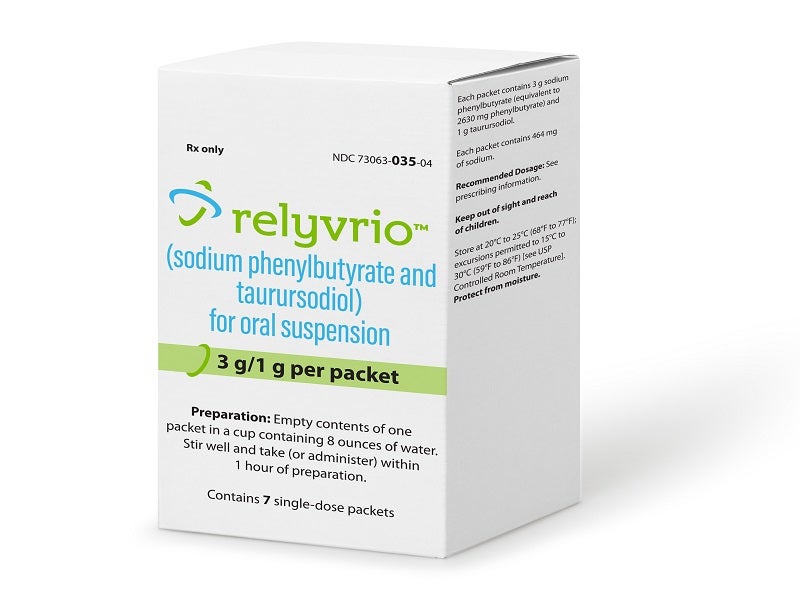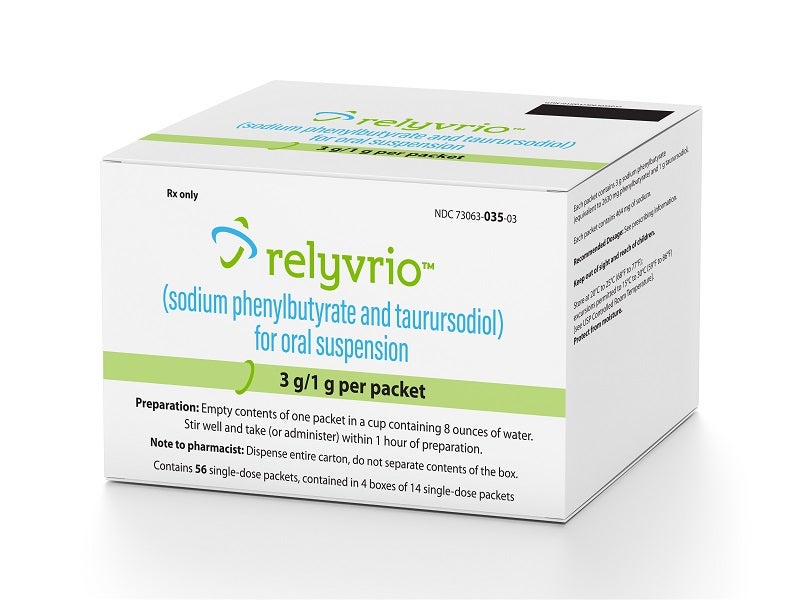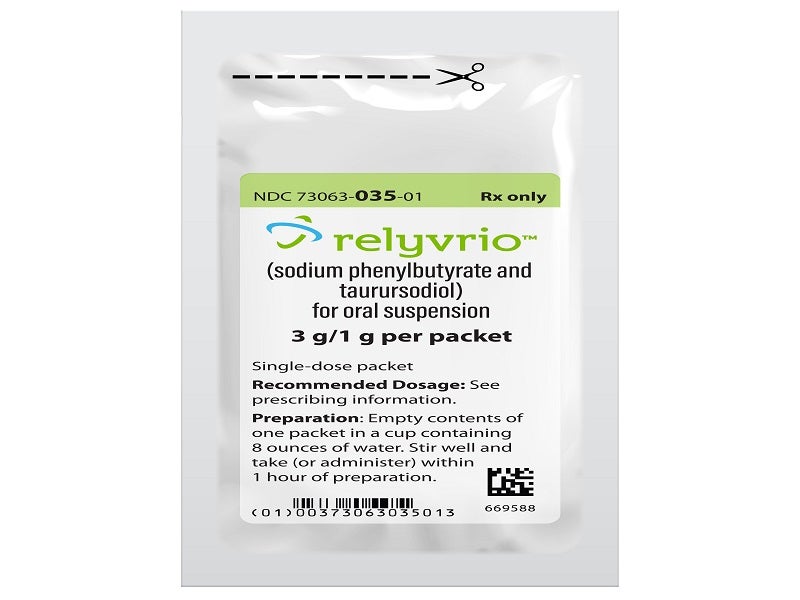Relyvrio is an oral, fixed-dose combination of sodium phenylbutyrate and taurursodiol for the treatment of amyotrophic lateral sclerosis (ALS) in adults. The drug can either be taken as a monotherapy or in combination with existing approved therapies.
Developed by US-based pharmaceutical company Amylyx Pharmaceuticals, Relyvrio is available as white to yellow powder in single dose packets for oral suspension, comprising 3g of sodium phenylbutyrate and 1g of taurursodiol.
The US Food and Drug Administration (FDA) approved Relyvrio in September 2022. The drug was conditionally approved for the treatment of ALS in Canada under the brand name Albrioza.
Relyvrio is currently under regulatory review by the European Medical Agency (EMA), with a decision expected in early 2023. The drug is also being investigated for the potential treatment of other neurodegenerative disorders.
Amyotrophic lateral sclerosis causes and symptoms
Amyotrophic lateral sclerosis (ALS) is a rare neurological disease characterised by motor neuron degeneration.
As motor neurons degenerate, they stop sending messages to the muscles, resulting in weak muscles and atrophy. The condition prevents the brain from initiating or controlling voluntary movements.
Early symptoms of ALS, also commonly known as Lou Gehrig’s disease, include muscle weakness and stiffness. The disease eventually affects all voluntary muscles, resulting in an inability to speak, chew, move, or breathe.
ALS is estimated to impact more than 200,000 people worldwide, including 29,000 people in the US.
Relyvrio’s mechanism of action
Relyvrio is a fixed dose combination of the bile acid taurursodiol and sodium phenylbutyrate, a pan-histone deacetylase (HDAC) inhibitor.
The drug’s exact mechanism of action is not fully understood, but its two compounds are broadly expected to work together to prevent nerve cell death by blocking stress signals within two cellular compartments, specifically mitochondria and the endoplasmic reticulum.
Relyvrio was designed to target the damaging mechanisms simultaneously. While taurursodiol improves the production of mitochondria energy, sodium phenylbutyrate improves endoplasmic reticulum stress through the upregulation of chaperone proteins.
Phenylbutyrate helps proteins acquire their normal shape, thus preventing the formation of protein clumps that cause nerve cell death.
Clinical trials on Relyvrio
The FDA’s approval of Relyvrio was based on positive outcomes of the multi-centre, randomised, double-blind, placebo-controlled and parallel-group Phase II clinical trial CENTAUR, which enrolled 137 ALS patients.
The 24-week CENTAUR clinical trial included a six-month randomised, placebo-controlled phase and an open-label extension (OLE) long-term follow-up phase to evaluate the drug’s safety and efficacy.
The study’s primary endpoint was a comparison of the rate of decline in the total score of the Amyotrophic Lateral Sclerosis Functional Rating Scale-Revised (ALSFRS-R; range, 0 to 48, with higher scores indicating better function) from baseline to 24 weeks.
In the study, patients were randomised in a 2:1 ratio to receive either Relyvrio or a placebo for 24 weeks. After 24 weeks, patients treated with Relyvrio and standard of care (SOC) achieved a total score of ALSFRS-R of 29.06, compared with 26.73 in patients treated with placebo plus SOC. The study demonstrated the drug’s long-term efficacy.
The most common side effects of Relyvrio in clinical trials included diarrhoea, abdominal pain, nausea, and upper respiratory tract infection.





